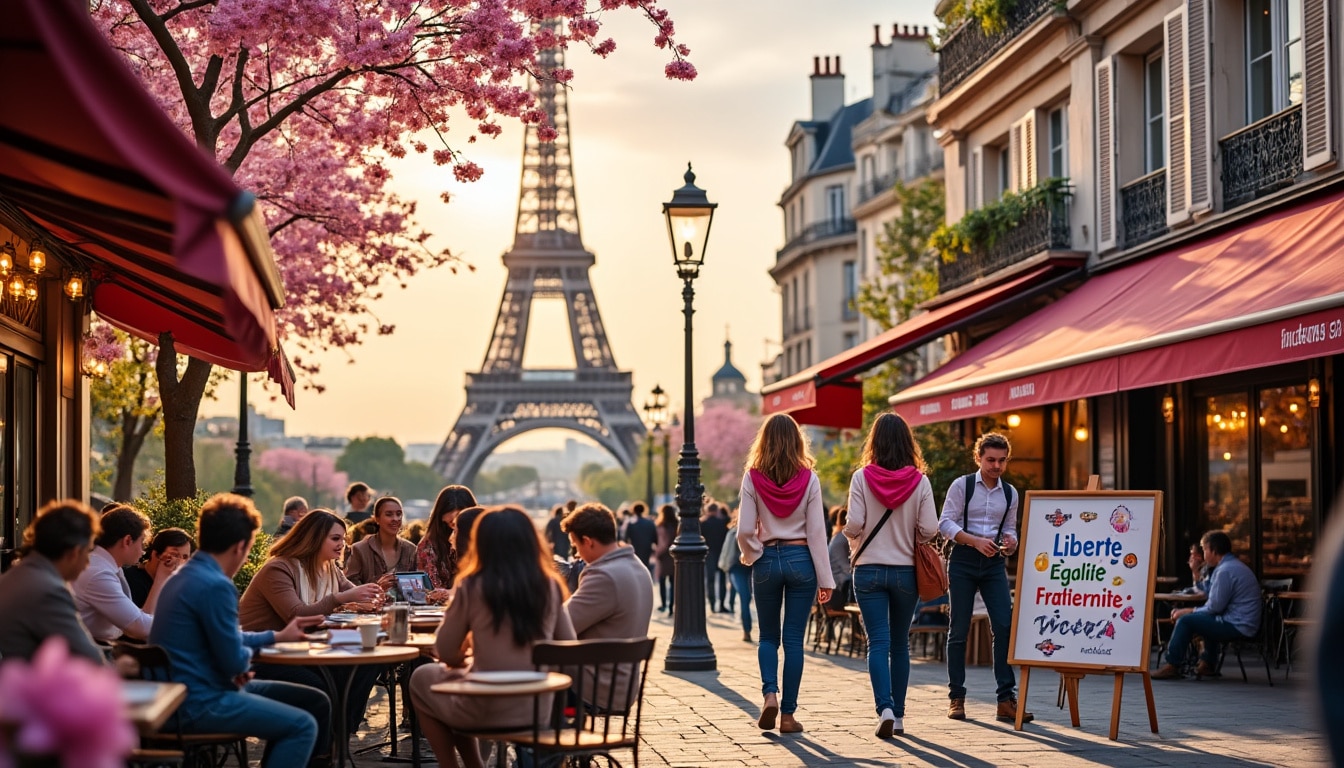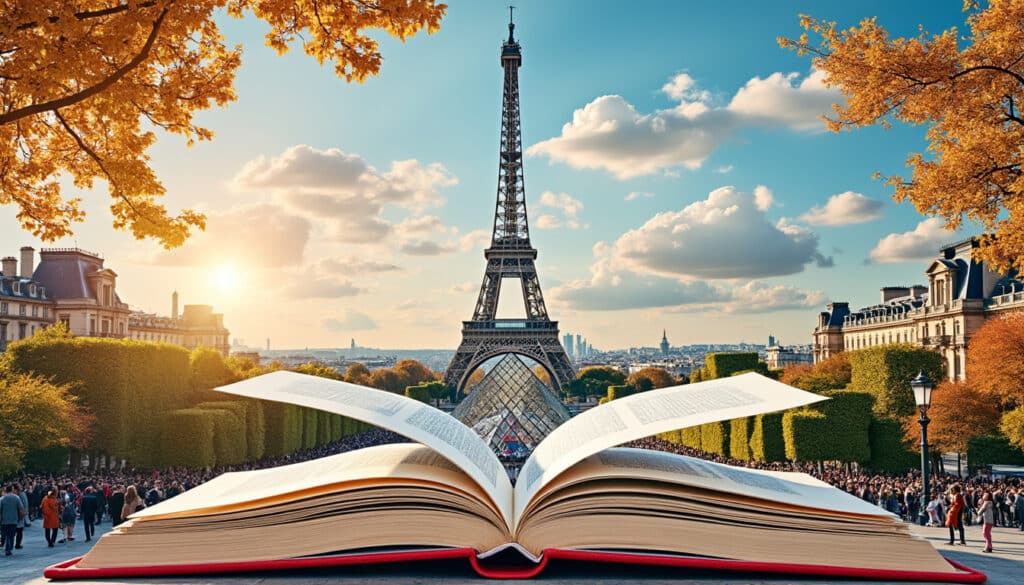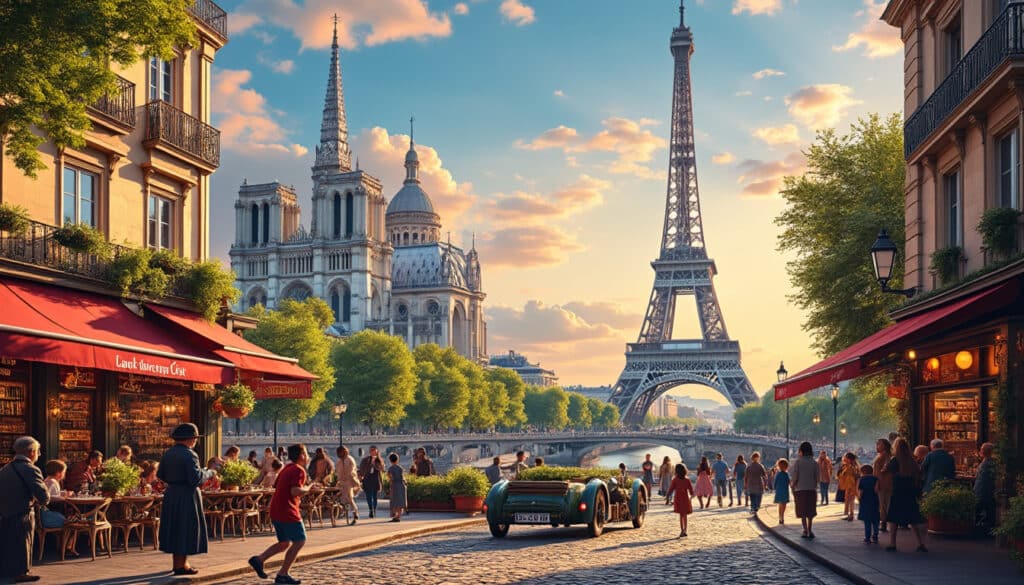Paris, the iconic City of Lights, is not only a hub for art, history, and fashion but also a melting pot of languages and cultures. For many travelers and expatriates, understanding the linguistic nuances of Paris is as essential as admiring its majestic landmarks. From mastering the correct pronunciation of the city’s name to navigating its multilingual landscape, language plays a pivotal role in the Parisian experience. While French is the lingua franca, a tapestry of languages enriches everyday interactions, each lending its unique charm to the Parisian lexicon.
Paris in English vs Paris in French: Understanding the Spelling
When it comes to spelling “Paris,” many might be surprised to know that the name maintains its form in both English and French. However, the pronunciation and nuances surrounding it differ significantly. In English, “Paris” is pronounced with a silent ‘s,’ sounding like par-is. In contrast, the French pronunciation requires a certain elegance and flair: “Paris,” pronounced as pa-ree. This not only adds a rhythmic grace to the name but is also an essential part of mastering French pronunciation as a whole.
While the spelling remains the same, the addition of an “accent aigu” (é) over the ‘a’ in “Paris” in French ignites curiosity and adds a linguistic dash. While typing in French, you can achieve this accent by utilizing simple keystrokes. For instance:
- Type an apostrophe ( ‘ )
- Follow it with the letter “a.”
- The accent aigu should appear: á
Thus, in French, you write Paris as simply “Paris,” yet understanding and employing the accented ‘a’ is a mark of linguistic prowess and respect for the language. However, it is crucial to remember that the spelling “Paris” remains unchanged whether writing in English or French.
This attention to detail in language, particularly in spelling, is more than just a matter of formality. It holds cultural significance. Spelling Paris properly signifies respect, not just for the place but for the linguistic culture of France. By demonstrating proficiency in addressing a city’s name correctly, one bridges gaps and connects more seamlessly with native speakers, enhancing communication even before engaging in conversation.
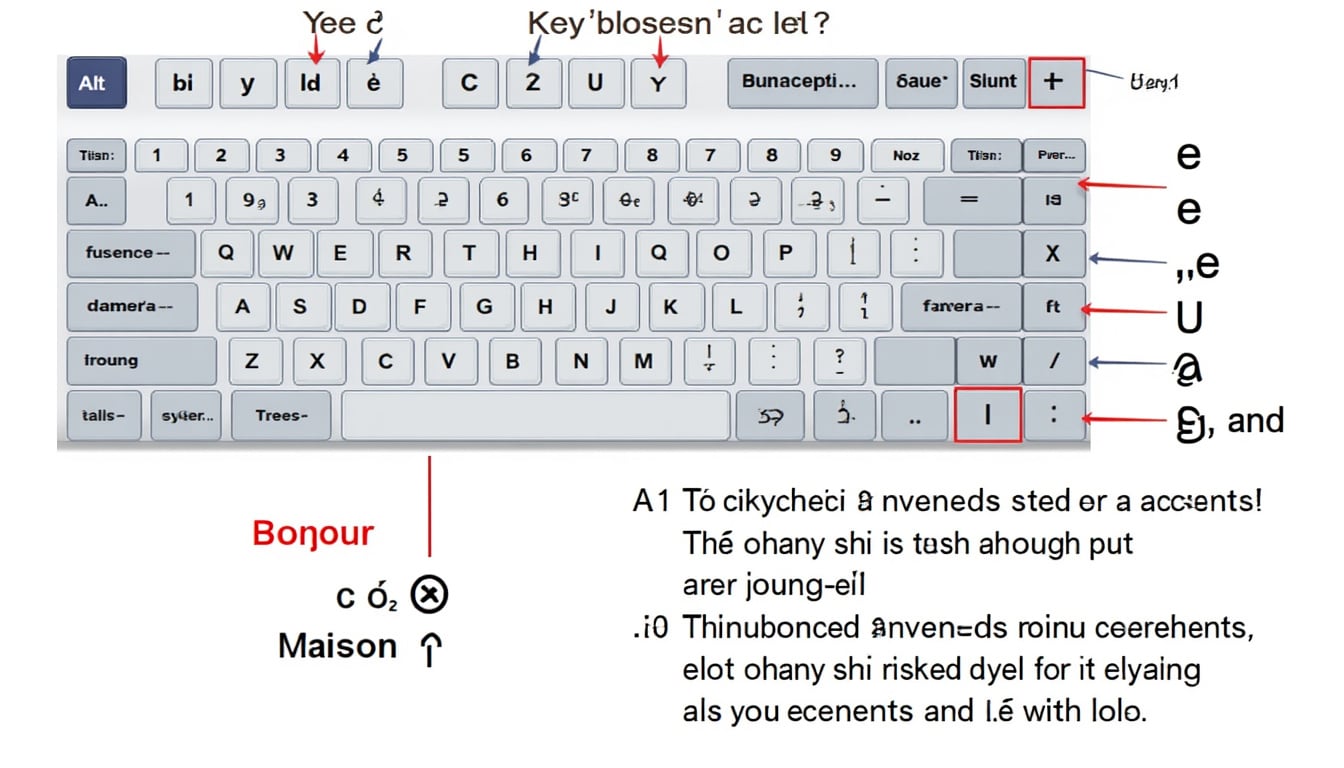
Navigating the Linguistic Landscape of Paris
France’s capital, Paris, stands at the crossroads of global cultures, a fact mirrored vibrantly in its linguistic landscape. While the primary language spoken in Paris remains French, the city pulsates with a mélange of languages due to its diverse population and dynamic international connections.
English, the de facto international language, naturally finds its place in the bustling streets, cafes, and tourist attractions of Paris. It is commonly used within the hospitality and tourism sectors, providing a comfort zone for tourists and easing interactions. However, relying solely on English might limit one’s experience, as numerous Parisian treasures lie in their native dialogues and expressions.
Besides French and English, languages such as Spanish, Italian, German, and Arabic are key components of the Parisian linguistic fabric. These reflect the city’s extensive expat communities and historical connections. Consequently, in the heart of Paris, one often hears a captivating mix of languages, reflecting the city’s vibrant cosmopolitan essence.
| Language | Usage in Paris | Significance |
|---|---|---|
| French | Main language, government, and daily activities | Official language of France |
| English | Tourism and international communication | Widely used in tourism |
| Spanish | Certain neighborhoods and interactions | Reflects connections to Spain and Latin America |
| Arabic | Spoken among immigrant communities | Important cultural heritage |
To truly blend into the Parisian life, learning a few basic French phrases can be an excellent gateway into the Parisian way of life. Simple expressions such as “Bonjour” (Hello), “Merci” (Thank you), and “Au revoir” (Goodbye) often elicit smiles of appreciation from the locals. When travelers make the effort to engage in these seemingly small linguistic gestures, it reflects a willingness to connect, breaking cultural barriers with ease.
The Art of Linguistic Paris: Embracing Parisian Words & More
Parisian vocabulary is a blend of artistic, cultural, and everyday vernacular, infused with the city’s dynamic energy. Fluency in Paris is not just about grasping the basic vocabulary; it delves deeper, encompassing an appreciation for the intricacies of WordCraft Paris.
Unlike many places where language learning is linear, in Paris, it intertwines with the essence of living. The words you will hear across the city’s arrondissements (districts) are a testament to its rich historical tapestry and avant-garde present. Take for instance the word “Café.” In Paris, it transcends the literal meaning of a place to drink coffee or the beverage itself, becoming a cultural institution, a setting for philosophical debates, and artistic collaborations.
For a richer cultural experience, here are some quintessentially Parisian terms worth exploring:
- Boulangerie (🥐): More than a bakery, it’s the cornerstone of daily life in Paris, with fresh baguettes serving as staples.
- Arrondissement (📍): Paris’s districts each have unique characteristics, contributing to its vibrant mosaic.
- Amuse-bouche (🍴): A small appetizer served before the starter, illustrating the Parisian love for gastronomy.
- Bateau Mouche (🚢): Sightseeing boat tours on the Seine, offering novel views of the city’s splendors.
This lexicon reflects the lifeblood of Paris, each term imbued with cultural nuances that echo through its streets. Engaging with these words and understanding their usage helps visitors and residents alike to craft a deeper connection with the city.
Parisian Lexicon: Spelling and Pronunciation Tips
Parisian spell and pronunciation provide an intriguing challenge, enriching your exploration of the city. Paris, known for its artistic linguistic nuances, encourages language learners to embrace these complexities with enthusiasm and curiosity.
The city’s name itself is often the first stumbling block for newcomers, yet mastering its pronunciation stands as a fundamental linguistic Paris achievement. Here is a breakdown of some handy tips:
- Sound Clarity (🗣️): French pronunciation is full of subtle nuances. Pay attention to the nasal sounds and silent letters that are commonly found in the French language.
- Simplified Vocabulary (📚): Start simple! Words that are similar in English and French like “Télévision” (Television) and “Hôtel” (Hotel) ease newcomers into the language.
- Accent Marks (✒️): French is filled with accent marks that alter pronunciation. The “grave,” “aigu,” and “circumflex” are essential for correct expressiveness.
To excel in Parisian pronunciation, one must also recognize common words adorned with these accent markers and mimic their sounds. For instance, words like “Café” (coffee) and “Touché” (an acknowledgment of a valid point) are practical anchors in vocabulary learning.
Pronouncing words correctly not only reduces headaches in daily transactions but enriches your cultural navigation within Paris itself. Language fluency is not an overnight achievement but a journey synonymous with Parisian life, bursting with moments of triumph and instances of understanding.
Communication Etiquette: More than Just Words
Language is an integral part of experiencing Paris, but communication extends beyond words. Understanding non-verbal cues and cultural taboos enhances interactions and helps avoid misunderstandings. Parisians appreciate politeness and formality, with gestures like eye contact and a slight nod of acknowledgment often appreciated.
Moreover, Parisian cultural norms offer insights into dining and social etiquette. For instance, an invite to a meal in Paris is more than just a chance to savor fine cuisine. It is an opportunity to engage in rich conversations and share mutual experiences. If you find yourself dining with locals, remember to compliment the chef and be aware that the French value quality time over rushed meals. Explore more insights about meal times in Paris and grasp the essence of every culinary experience.
- Politeness (🧡): Always greet with “Bonjour” upon entering and “Au revoir” when leaving.
- Respectful Address (🙏): Use “vous” for formal interactions, gradually transitioning to “tu” as rapport builds.
- Gesture Awareness (👏): Subtle gestures like touching the cheek during greetings are standard; however, gestures vary across regions.
Language is a gateway to cultural depth, yet non-verbal elements are equally paramount. By observing social decorum and participating appreciatively, you can foster meaningful connections and interact seamlessly in the vibrant city of Paris.
FAQ: Paris Language Queries Explored
To further enrich your understanding of the linguistic dynamics in Paris, here are some frequently asked questions:
- 1. What makes Paris unique in terms of language?
Paris is a global hub, harmonizing French with a diverse array of languages including English, Spanish, and Arabic, reflecting its multicultural composition.
- 2. How important is it to learn French before visiting Paris?
While it’s not essential to be fluent, grasping basic phrases enhances the experience, shows respect, and facilitates smoother interactions with locals.
- 3. Can English-only speakers comfortably navigate Paris?
Yes, English is widely understood, and Paris accommodates international languages, particularly in the hospitality and tourism sectors.
- 4. Are there specific areas in Paris where languages other than French are predominant?
Certain neighborhoods or communities may see a higher prevalence of languages like Arabic or Spanish tied to their cultural demographics.
- 5. Is it true that French people rarely speak English?
This stereotype is shifting as more Parisians—especially younger generations—embrace English to facilitate global interactions.
Paris not only survives as a focal point for language learners worldwide but thrives as a unique destination where linguistic diversity is celebrated and explored. The city invites you to delve into its vibrant language landscape—a journey filled with intriguing discoveries and boundless opportunities.
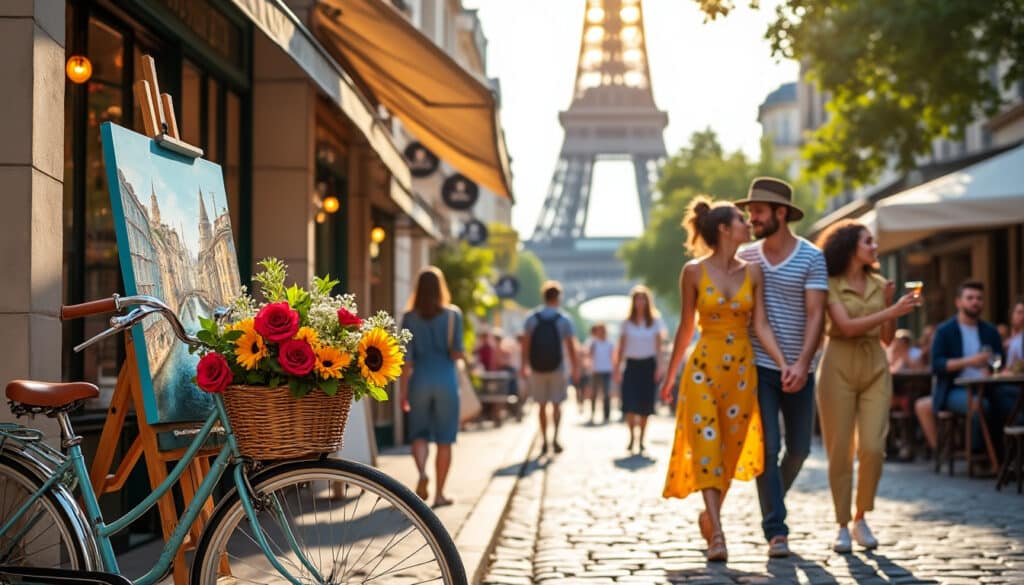
Fun Facts & Curiosities About Paris
Paris, often lauded as the City of Light, is famous for its iconic landmarks like the Eiffel Tower, Notre Dame Cathedral, and the Louvre Museum. Yet, there exists a treasure trove of fascinating facts and curious anecdotes that make Paris…
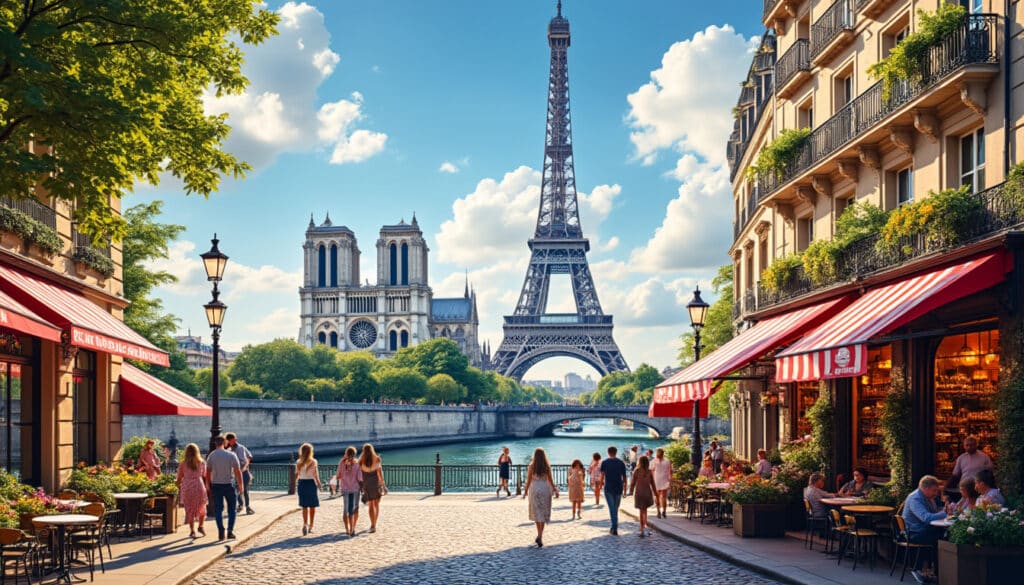
Architecture and urban features of Paris
Paris, the enchanting capital of France, is synonymous with architectural elegance, offering a tapestry of styles that narrates the story of the city’s evolution through the ages. From the towering Gothic structures to the refined lines of Haussmannian facades, each…
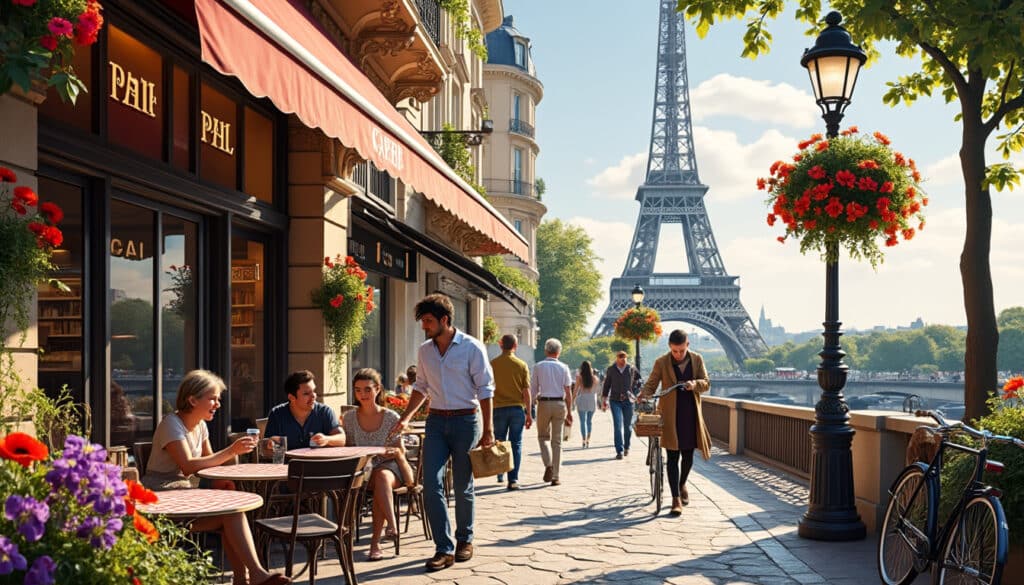
Daily life in Paris is a fascinating blend of art, culture, history, and modernity. From the moment you wake up to the delightful aroma of freshly baked baguettes at your local boulangerie, to the evening’s social buzz at chic bars…
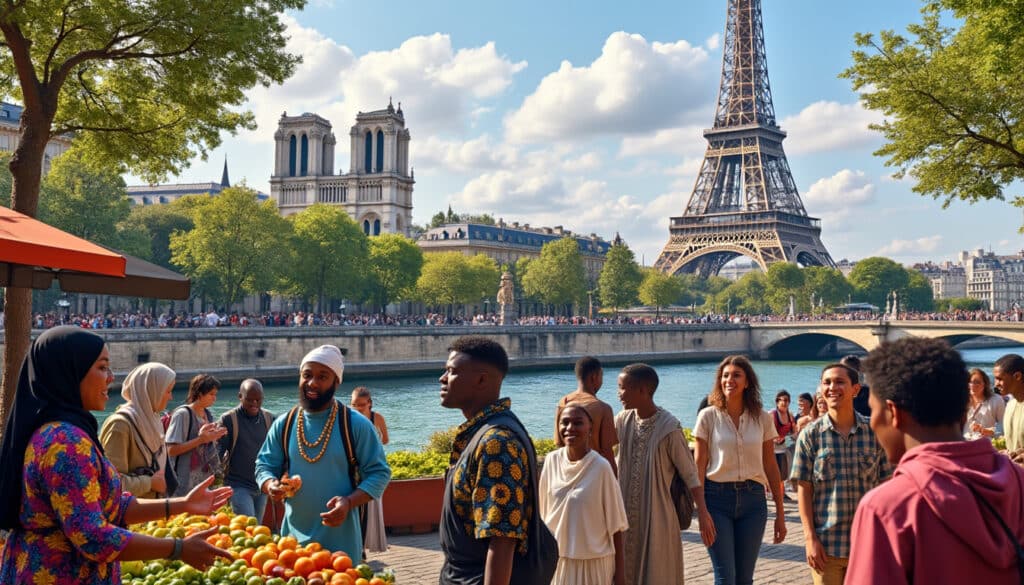
Demographics and geography of Paris
Paris, the City of Lights, is not just renowned for its breathtaking landmarks and artistic flair but also for its rich demographic tapestry and fascinating geography. The capital of France is a bustling metropolis that has seen significant transformations over…
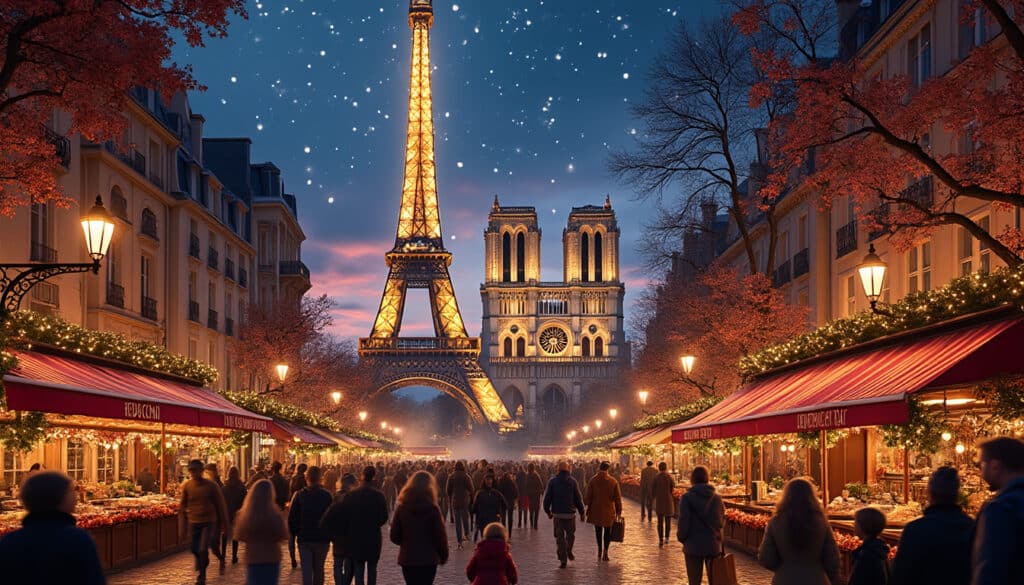
Holidays and celebrations in Paris
Paris, the City of Lights, is known for its rich history, vibrant culture, and iconic landmarks. But beyond the Louvre and the Eiffel Tower lies a tapestry of celebrations that bring the city to life throughout the year. From religious…
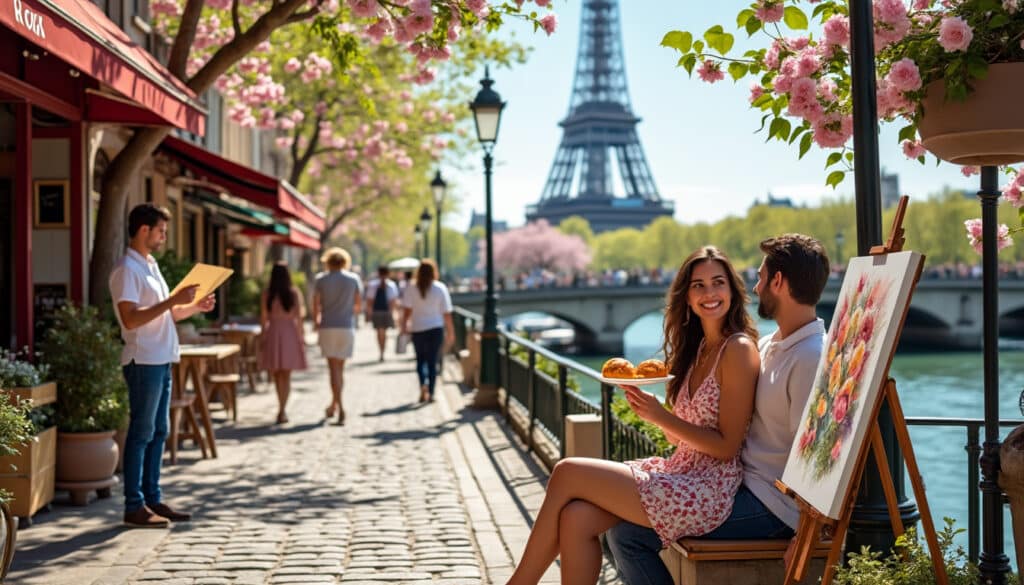
Local tips for tourists in Paris
Paris, often referred to as the “City of Light,” is a timeless destination that attracts millions of tourists every year. However, truly experiencing Paris as a local can unravel a different side of this enchanting city, one that is filled…
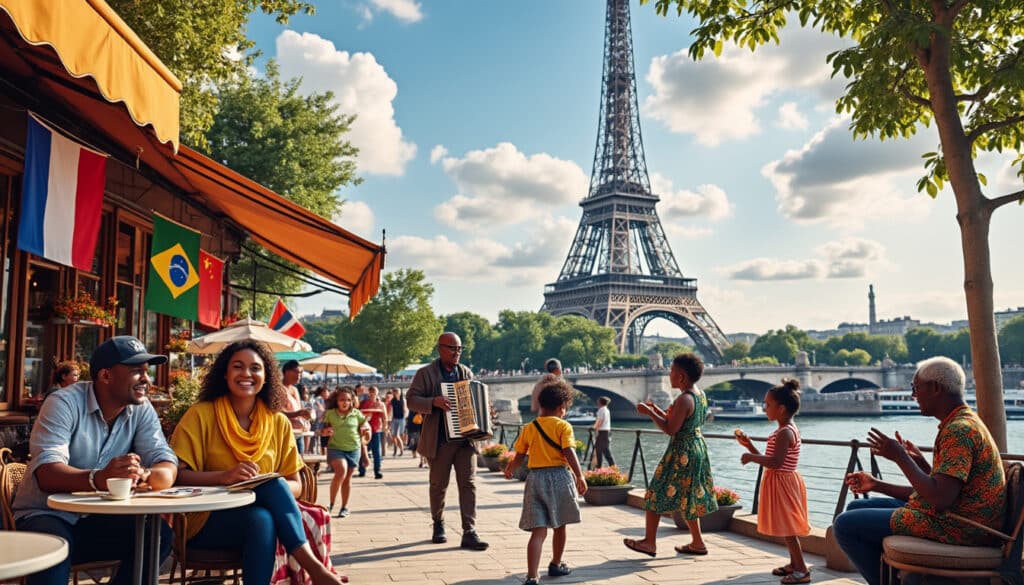
Names, flags, and identity of Paris
Paris, the City of Light, is not only celebrated for its iconic monuments such as the Eiffel Tower, but it is also a hub of cultural richness and historical depth that goes beyond its visual grandeur. From its age-old symbols…
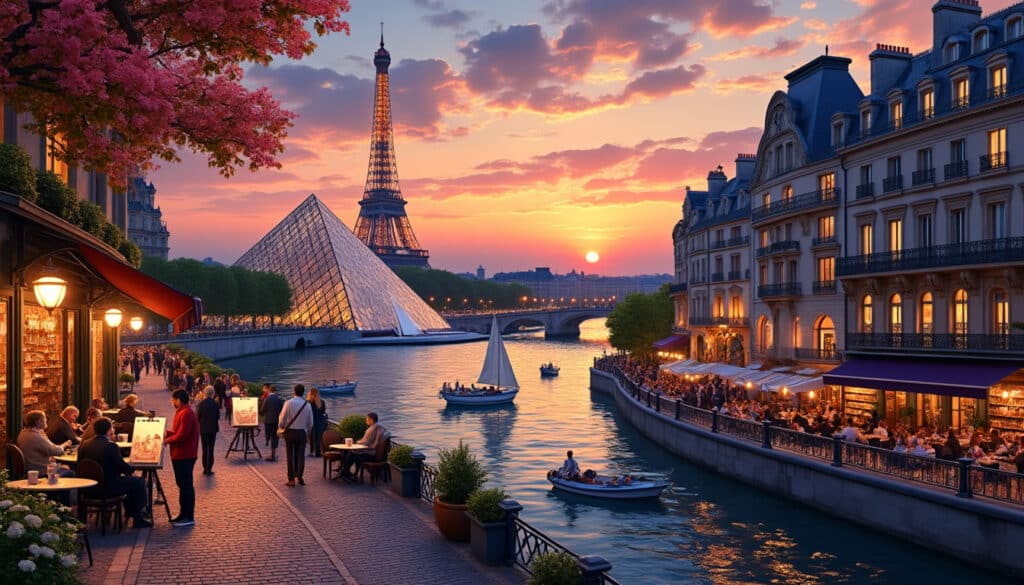
Reputation and identity of Paris
Paris, the illustrious capital of France, has long stood as a beacon of art, culture, and history, drawing millions of visitors annually who are captivated by its unique charm. Renowned as the “City of Light,” Paris is celebrated for its…
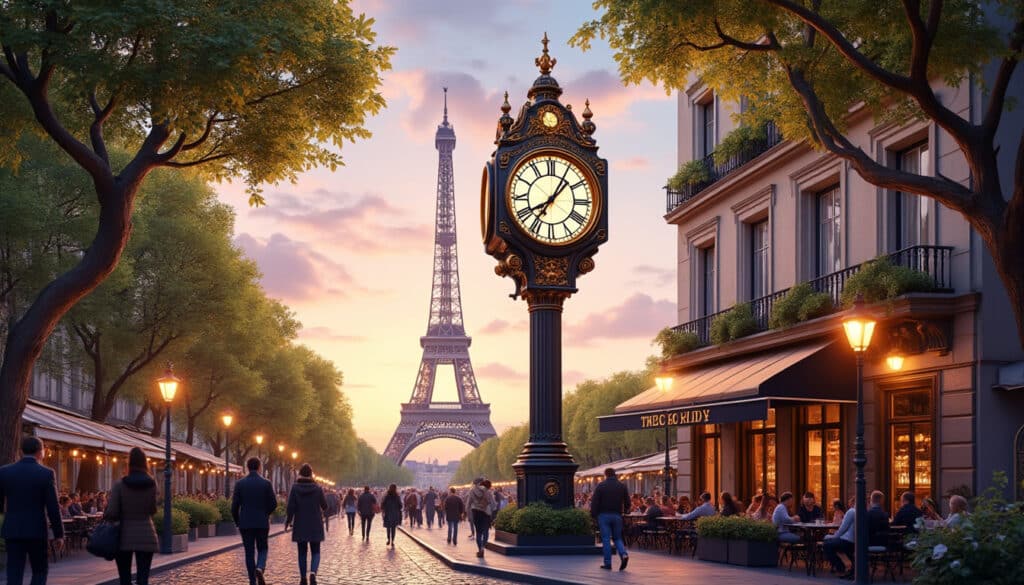
The vibrant city of Paris, France, is not only known for its rich culture, breathtaking architecture, and exquisite cuisine, but it also operates on a unique time schedule that visitors and residents must navigate. Understanding the time and time zone…
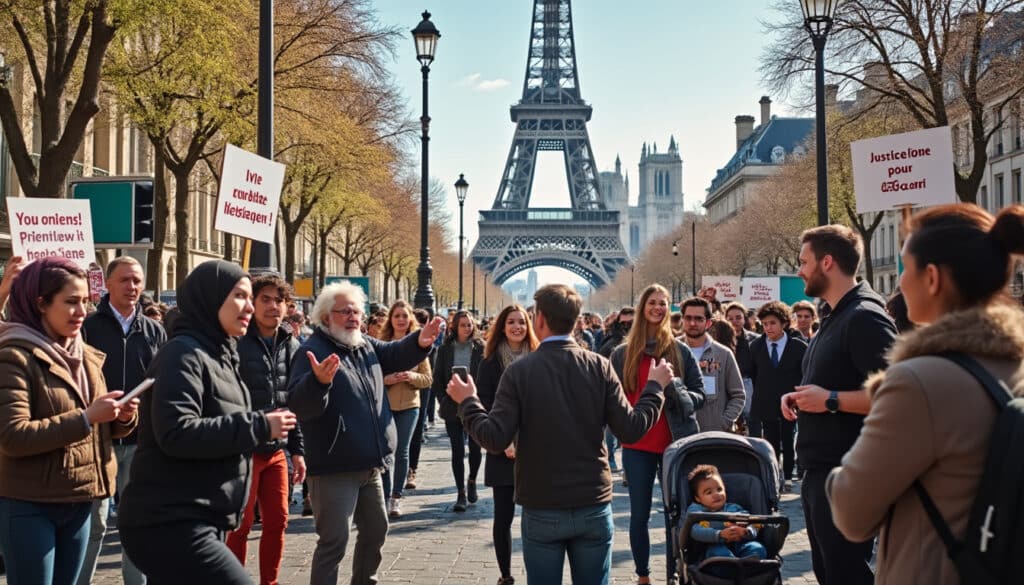
Unusual facts and social issues in Paris
Paris, with its timeless allure, is often depicted through its elegant boulevards, romantic cafes, and iconic landmarks like the Eiffel Tower. Yet, beneath this postcard-perfect exterior lies a tapestry of lesser-known stories and issues that paint a more complex portrait…
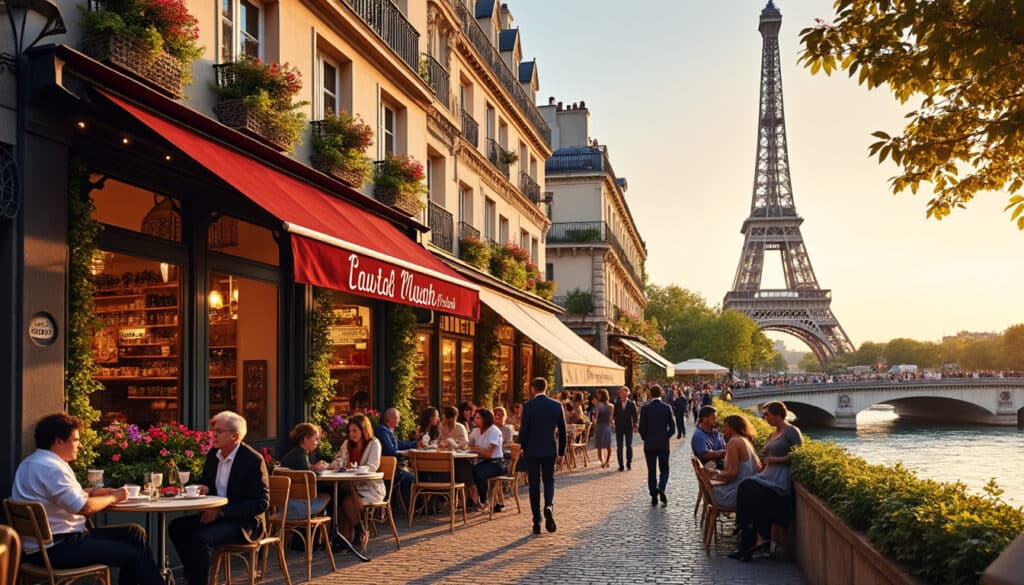
What does Paris look, smell, feel like?
Paris, often referred to as the “City of Light,” is renowned for its stunning architecture, rich history, and artistic heritage. This vibrant city is a haven for art enthusiasts and gastronomes alike. Its streets are lined with magnificent buildings, offering…

